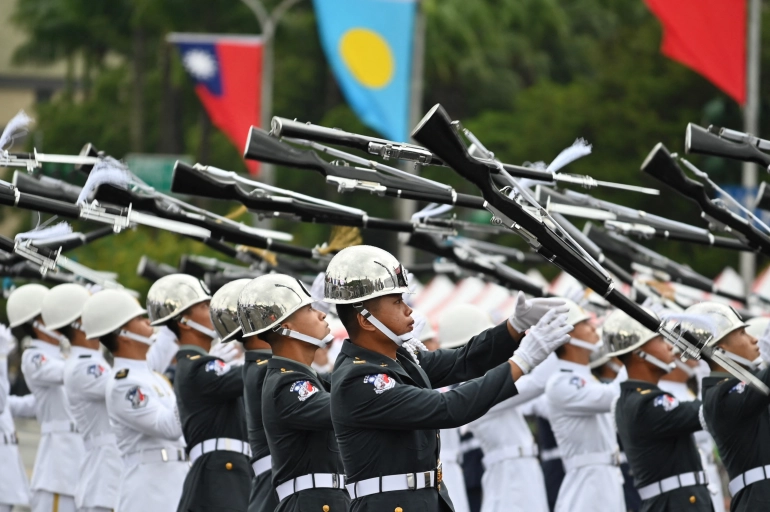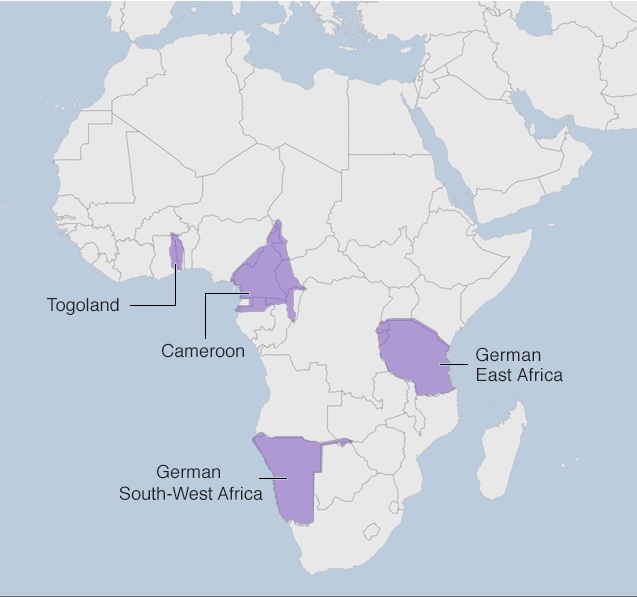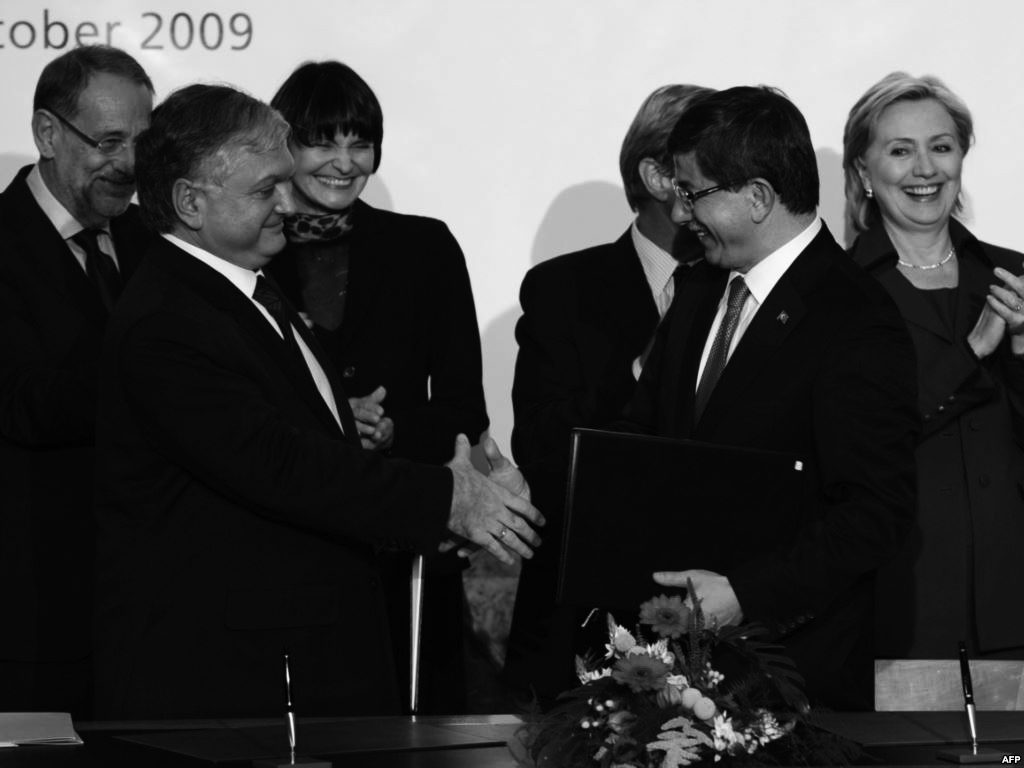
This is the English translation of a Turkish language article that was originally published by AVİM on 9 November 2022
In the last seventy decades, there have been two Chinese peoples ruled by different political regimes on either side of the Taiwan Strait. The people of the island of Taiwan, consisting of a small percentage of the island's natives and an overwhelming majority of Han Chinese (primarily merchants) who began arriving in the 17 century, are perceived by China as an inalienable part of the country and the Chinese nation.[1]
Annexed by the Qing Dynasty in the late 1600s, Taiwan was later ceded by China to Japan in 1895 as a result of the Sino-Japanese War. After the Meiji Restoration in Japan between 1868 and 1889, Japan actively expanded its imperial power. Within this framework, Japan began to direct troops to Taiwan in 1874. It classified Taiwan and its surroundings as the lands of Shina and Huan and aimed to take away the sovereignty of the Huan land from the Qing Dynasty, which constituted the first step of the Japanese invasion.[2] Thereupon, Taiwan was ceded by China to Japan in 1895 in accordance with the Treaty of Shimonoseki signed after the First Sino-Japanese War that started in 1894. Japan governed the island as a colony until 1945, when they handed it over to the nationalist Chinese military forces led by Chiang Kai-Shek.
From 1945 to 1949, the nationalist Chinese government (ROC) was engaged in a ferocious civil war with the Communist Party forces led by Mao Zedong. In the end, the Communists prevailed and a Beijing-based People's Republic of China (PRC) was established in mainland China on 21 September 1949. Thereupon, officials of the former government hastily started to settle in the city of Taipei in northern Taiwan that was described as the "temporary capital" of ROC during the Communist insurrection. When Mao Zedong became the leader of the PRC in 1949, the overthrown government tried to organize itself and regain its legitimacy by going to Taiwan. As a result, nearly one million refugees, including soldiers, teachers, merchants, bureaucrats, and police, went to Taiwan due to the regime change brought about by the turmoil in the mainland and the resulting chaos.[3]
On 28 February 1947, amidst the civil war in mainland China, tension flared up in Taiwan as well, resulting in riots sparked by a government-sponsored massacre.[4] Japanese influence was blamed for uprising’s transfer to Taiwan, especially since most of the protests and insurgent radio broadcasts were in Japanese. Within this framework, China terminated Japanese broadcasts in Taiwan and removed Japanese flags and Japanese educated elites from state affairs.[5]
The United States recognized the communist People's Republic of China in 1979. For the previous thirty decades, the American government had argued that members of the old regime in China who fled to Taiwan were the legitimate government of China. Accordingly, the US referred to the Chinese population in Taiwan as "Free China" in the 1950s and 1960s. However, from the last years of the 1960s onwards, there was a tendency towards a different policy regarding China-US relations. The policy of the US in this period had two different dimensions: Normalizing the relations with the PRC in mainland China and abandoning the advocacy of the legitimacy of the ROC on the island of Taiwan. This radical change was introduced and developed by then-US President Richard M. Nixon and Henry Kissinger, who was Nixon's national security adviser between 1969-1975 and served as the US Secretary of State between 1973-1977. This change morphed into a policy that was undertaken by assuming a great political risk.
This policy change, which supported opening to China, was shaped as a part of the dynamics of the US foreign policy during the Cold War. As such, in general, when Nixon and Kissinger launched normalization with the PRC, they were acting in line with American national interests.[6] Nixon and Kissinger's strategic shift towards establishing a dialogue with the PRC as a way of isolating the Soviet Union became evident with Nixon's visit to China in 1972.
The removal of Taiwan (ROC) from the United Nations in 1971 and the recognition of PRC by the US and other Western countries as the sole legitimate representative of all China shook Taiwan considerably. As a consequence of the US abandoning its long-standing policy of denying the PRC, the US and the PRC signed a “Joint Communique of the USA and the PRC” in Shanghai in 1972. In accordance with the "One China policy", Washington recognized the PRC as the sole legitimate representative of China in January 1979.[7] As for Taiwan, it was being increasingly marginalized in the international community. The US had made a commitment to Taiwan while terminating diplomatic relations with the former Chinese government in the island. Accordingly, it was argued that the economic ties between mainland China and the island of Taiwan would be established soon.[8]
After the 1970s, the US policy towards China emerged as a combination of integration and balance policy. According to the "Taiwan Relations Act" document approved by the US Congress in 1979, although the US did not recognize Taiwan as a separate state, it prepared the legal basis for establishing relations with Taiwan.[9] In the ongoing process, the main purpose of the US policy towards Taiwan was to prevent the annexation of Taiwan by China and to preserve the status quo. At that time, cooperating with the PRC was indispensable for the US since it wanted to reduce the influence of the Soviet Union in the region. As for today, Taiwan is vital to the implementation of American foreign policy in the Asia-Pacific region, so maintaining its security is especially important for the US.
After the political struggle between various figures following Mao Zedong's death, Deng Xiaoping assumed power as the paramount leader of China by 1978. At the same time, just like China in the 1970s, there was a change of leadership in Taiwan as well. Taiwan's leader Chiang Kai-Shek was replaced by his son, Chiang Ching-Kuo, who declared his policies that stated Taiwan's goal was complete independence. Wanting to preserve the status quo, the US issued the third Joint Communique on its relations with China on 17 August 1982 and committed to gradually reducing arms sales to Taiwan. However, this attitude did not last for long. Especially after the 1989 Tiananmen Incident, the US started to increase its military and political support for Taiwan against a rising China.[10]
Relations between China and Taiwan began to develop in a different dimension in the 1980s. Accordingly, Chinese President Deng Xiaoping announced a formula in 1992 called “one country, two systems” and would give autonomy to Taiwan if it agreed to unification. Within this framework, Hong Kong and Macau had become parts of China and were granted the right to establish different political and economic systems. However, Taiwan did not accept this formula, which it considered to be a violation of its sovereign rights, and thus did not put it into practice.[11]
In Taiwan, which experienced power changes in the following years, different attitudes have been displayed regarding unification with China. For example, while Chen Shui-bian, elected president in 2000, supported Taiwan's full independence, Ma Ying-jeou, who took office in 2008, turned to a policy of improving relations with China. As for Tsai Ing-wen, the current President of Taiwan who came to power in 2016, she emphasizes independence for Taiwan at every opportunity.[12] Tsai, who holds the title of being the first female president in Taiwan's history, is also the leader of the Democratic Progressive Party (DPP) [Update: Tsai resigned from her position as party leader after disappointing local election results in last November]. Meanwhile, Xi Jinping took office as President of China in 2013.
After Tsai's coming into power, China continued to advocate the "one China" policy and emphasized the 1992 Consensus known as "one country, two systems". However, the discourse of the new Taiwanese government that contradicts the moderate policy of former Taiwanese leader Ma has resulted in China hardening its stance on Taiwan.
While reducing its military presence in the Middle East region and countries such as Afghanistan based on its defense and foreign policy, the US has directed its new area of interest to the Asia-Pacific. Within this framework, it is trying to increase its influence even more with the agreements and pacts made in the region. The main ones can be listed as the “Quadrilateral Security Dialogue” (QUAD) and AUKUS (Australia, the UK, and the US). The increasing dialogue carried out by the US in the Asia-Pacific can be shown as one of the reasons why China has hardened its policies against Taiwan. Apart from this, one of the important reasons for the hardening of China's Taiwan policy is the desire to complete reunification by 2049, which has been expressed by Chinese President Xi.[13]
Within this framework, the tension in the Taiwan Strait reached a level in August that has not been seen for many years due to the visit of Nancy Pelosi, the Speaker of the US House of Representatives, to Taipei. Thereupon, Beijing initiated military exercises around the island and suspended or canceled various channels of military dialogue and cooperation with the US. Taiwan was confronted with unprecedented provocations, including air and naval operations in its territorial waters and cyber-attacks. On 1 September 2022, shortly after Taiwanese leader Tsai ordered the Taiwanese armed forces to take "strong countermeasures" against Chinese provocations, Taiwan shot down a civilian drone that entered its airspace for the first time.[14]
Pelosi's visit took place in an environment where China-Taiwan relations, which had been fragile recently, had become even tenser. The visit escalated the crisis at a time when both Washington and Beijing were preparing for important domestic political events. Pelosi's visit to Taipei made the cycle of action-reaction even more unstable,[15] because from Beijing's point of view, the visit constituted a political provocation and a signal from the US in favor of Taiwan’s independence. According to Washington's statements, China's increasing "unjustified pressure" on Taiwan is seen as potential proof of its intention to blockade Taiwan in the future, and the US is thus taking steps to maintain stability there.
In terms of US’ Taiwan policy, the US Senate Committee on Foreign Relations began to evaluate the draft of the "Taiwan Policy Act" of 2022, which was considered as the most comprehensive restructuring of the US policy towards Taiwan since the Taiwan Relations Act of 1979. The proposed Taiwan Policy Act considers weapons supplied to Taiwan not for defensive purposes but as "weapons suitable to deter [China's] acts of aggression." It also includes a 4.5 billion Dollar aid plan for foreign military financing to Taiwan over four years, giving priority to Taiwan's aid requests.[16] On 5 September 2022, China stated that it would take drastic measures against the US’ approval of the 1.1 billion Dolar arms sale to Taiwan, the biggest since US President Joe Biden took office. China has long urged the US to cease arms sales and military interactions with Taiwan. Despite China's intimidation, the US Senate Committee on Foreign Relations adopted the Taiwan Policy Act of 2022 on 14 September 2022.
Despite this support, the following statements appear on the website of the US Department of State: “We oppose any unilateral changes to the status quo from either side.”[17]
In his statement on 18 September 2022, US President Biden said, “Taiwan is making its own decisions about its independence. We are not encouraging independence. This is their decision”. Accordingly, on the one hand, the US tries to demonstrate its adherence to the one-China policy, which is one of the cornerstones of its relationship with China. Under this policy, the US recognizes that there is only one Chinese government, and it has official ties to Beijing rather than Taipei. However, on the other hand, it maintains close relations with Taiwan and continues to sell weapons to Taiwan in accordance with the Taiwan Relations Act, which stipulates that the US will provide Taiwan with the necessary tools for self-defense.[18]
After these events, the first high-level contact between Beijing and Washington took place when the diplomats of the two sides met in New York at the end of last September. China stressed that its relations with the United States were facing a serious challenge and it was important to create a favorable atmosphere for the restoration of normal relations between Beijing and Washington and steer relations in a healthy and stable direction. Chinese Foreign Minister Wang Yi stated, “The actions of the United States go against the normalization process of relations. They are trying to undermine China's sovereignty and territorial integrity, trying to limit China to Taiwan by sending a truly wrong and dangerous signal”. Warning that China would take strong measures against Taiwan’s independence attempts, Wang continued by emphasizing the common interests of China and the US. After the discussions, the US Department of State made a statement on the need to maintain open lines of communication, especially in times of tension. On the subject, Ned Price, Spokesperson for the US Department of State, said, “the United States is committed to maintaining peace and stability across the Taiwan Strait, consistent with our longstanding one China policy.”[19]
On 10 October 2022, Taiwan's leader Tsai Ing-wen told thousands of people gathered for Taiwan's national day that Taiwan would never give up on its democratic way of life and emphasized that the government would continue to support Taiwan's defense. Tsai also stated that different strategies are being developed to respond more effectively to the threat posed by China and reiterated that they would not compromise on independence.[20]
The twentieth opening ceremony of the National Congress of the ruling Chinese Communist Party, held every five years in China, took place on 16 October. Chinese President Xi Jinping, in his speech there, stated that China reserved the option of taking all necessary measures against interference by outside forces regarding Taiwan. Stressing that the Taiwan question is only concerns China, Xi said, "There are actions in Taiwan that only involve the interference by outside forces and a few separatists seeking Taiwan's independence."[21] China one again suggested that a similar version of the "one country, two systems" plan applied to Hong Kong be applied to Taiwan. Xi added that efforts would be continued to peacefully unite with Taiwan, but would resort to the option of using force if necessary. In response to Xi's speech, the Taiwanese government stated that the majority of Taiwanese citizens steadfastly reject “one country, two systems” and indicated that Taiwan is an independent state which will not compromise on its territorial sovereignty, democracy, or freedom. In addition, it was stated that keeping peace in the Taiwan Strait is a shared responsibility and Taipei is willing to work with Beijing under the principles of rationality, equality, and mutual respect.[22]
Xi Jinping began his third term presidency with the congress of the Communist Party of China that ended on 23 October 2022. Having guaranteed his position as the leader of the party, Xi highlighted concepts such as China's modernization, high-quality development, common prosperity, and a society with a common future in the 20th National Congress Report. Having emphasized the importance of national security since he became the General Secretary of the Party, Xi announced that new institutions would be built to fulfill this priority. Tensions with Taiwan are at the forefront of the issues that threaten the national security of China. The Taiwanese government announced on 26 October 2022 that China has stepped up its diplomatic attacks on Taiwan after the congress.[23]
In the latest situation, China continues to increase diplomatic and military pressure to impose Chinese rule on Taiwan. The Taiwan government, on the other hand, maintains its claims of sovereignty, stating that only the 23 million people living on the island can decide their future. The sense of Taiwanese identity that has increased on the island in recent years has started to overtake the sense of Chinese identity there. As more and more people identify as "Taiwanese" these days, the concept of "one China" has increasingly faded through political communication, economic integration, social exchange, and cultural assimilation across the Taiwan Strait. However, according to the PRC Constitution, Taiwan is an integral part of China. China's support of the "one China" motto prevents Taiwan, where nationalism is on the rise, from having an independent future. Within this frame, China will probably increase its pressure on Taiwan in the future. On the other hand, no matter how much the US claims that it does not act against the “one China” principle, it nevertheless provides support to Taiwan by presenting Taiwan as a country that stands on the brink of freedom that deserves support for protecting its sovereignty and democracy. The tension in relations between Washington and Beijing undermines the possibility of the US and China from reaching an agreement on Taiwan. The tension in US-China relations also creates risks for Taiwan and its security is becoming precarious due to the US-China rivalry. As a result, Taiwan is trying to walk a tightrope when it comes to taking steps for its sovereignty.
*Photograph: Al Jazeera
[1] Eleanor Albert, “China-Taiwan Relations”, Council on Foreign Relations, December 7, 2016, https://css.ethz.ch/content/dam/ethz/special-interest/gess/cis/center-for-securities-studies/resources/docs/CFR-China-Taiwan Relations.pdf
[2] “Invasion of Taiwan”, The Archives of Institute of Taiwan History, Academia Sinica, https://archives.ith.sinica.edu.tw/collections_con2_en.php?no=174
[3] Ibid.
[4] Andrew D. Morris, “Taiwan’s History”, The Minor Arts of Daily Life: Popular Culture in Taiwan, January 1, 2004, p. 5.
[5] Ibid, p.22.
[6] Nancy Bernkopf Tucker, “Taiwan Expendable? Nixon and Kissinger Go to China”, The Journal of American History, Vol. 92, No. 1 (Jun, 2005), p. 117.
[7] L.T. Dixon, “More Dreams In Longer Night: United States China Policy”, U.S. Army War College Strategy Research Project, p. 1-12.
[8] Richard Bush, “The United States Security Partnership with Taiwan”, The Brookings Institution, https://www.brookings.edu/wp-content/uploads/2016/11/fp_20160713_taiwan_alliance.pdf.
[9] Süleyman Özmen, “Çin Halk Cumhuriyeti’nin Tayvan Politikası ve Bu Politikanın Dünya Siyasetinde Önemi”, MANAS Sosyal Araştırmalar Dergisi, 11(3), 2022, p. 1314.
[10] İshak Turan, “ABD-Çin İlişkileri Bağlamında Tayvan Sorunu”, Düzce Üniversitesi Sosyal Bilimler Enstitüsü Dergisi, 6(1), 2016, p. 88.
[11] Özmen, “Çin Halk Cumhuriyeti’nin Tayvan Politikası ve Bu Politikanın Dünya Siyasetinde Önemi”, p. 1310.
[12] Anna Fifield, “Taiwan’s president wins second term with landslide victory over pro-Beijing rival”, Washington Post, January 15, 2020, Taiwan’s president wins second term with landslide victory over pro-Beijing rival - The Washington Post
[13] Jean-Pierre Cabestan, “Beijing’s Policy Towards President Tsai Ying-wen and the Future of Cross-Strait Relations”, Seton Hall Journal of Diplomacy and International Relations, September 2017, Beijing’s-Policy-Towards-President-Tsai-Ying-wen.pdf (shu.edu)
[14] “Taiwan shoots down ron efor first time off Chinese coast”, Reuters, September 1, 2022, https://www.reuters.com/world/asia-pacific/taiwan-shoots-down-unidentified-drone-kinmen-2022-09-01/
[15] Lily Kuo, Erin Cunningham, Yasmeen Abutaleb, Rachel Pannett & Annabelle Timsit, “Nancy Pelosi departs Taiwan, ending contentious visit that angered China”, The Washington Post, August 3, 2022, https://www.washingtonpost.com/world/2022/08/02/nancy-pelosi-taiwan-visit/
[16] Cui Fandi, “US to consider 'comprehensively restructuring' policy toward Taiwan island; may lead to China’s strong countermeasures”, Global Times, September 13, 2022, https://www.globaltimes.cn/page/202209/1275192.shtml
[17] Ibid.
[18] Frances Mao, “Biden again says US would defend Taiwan if China attacks”, BBC News, September 19, 2022, https://www.bbc.com/news/world-asia-62951347
[19] Riyaz ul Khaliq, “Necessary to push China-US relations back to healthy track: Wang tells Blinken”, Anadolu Agency, September 23, 2022, https://www.aa.com.tr/en/asia-pacific/necessary-to-push-china-us-relations-back-to-healthy-track-wang-tells-blinken/2693299
[20] “Taiwan’s Tsai says can be ‘no compromise’ on democracy or freedom”, Al Jazeera, October 10, 2022, https://www.aljazeera.com/news/2022/10/10/taiwan-says-war-with-china-absolutely-not-an-option
[21] Evelyn Cheng, ‘Xi warns against foreign interference in Taiwan, says China will ‘never promise to renounce’ force’, CNBC, October 16, 2022, https://www.cnbc.com/2022/10/16/xi-warns-against-taiwan-interference-at-chinas-cpc-national-congress.html
[22] Ibid.
[23] “China likely to ramp up diplomatic 'attacks' on Taiwan, says island's foreign minister”, Channel News Asia, October 26, 2022, https://www.channelnewsasia.com/asia/china-taiwan-ramp-diplomatic-attacks-foreign-minister-joseph-wu-3025956
© 2009-2025 Center for Eurasian Studies (AVİM) All Rights Reserved
No comments yet.
-
 THE EU’S FIRST SERIOUS CENTRAL ASIA INITIATIVE
THE EU’S FIRST SERIOUS CENTRAL ASIA INITIATIVE
Hazel ÇAĞAN ELBİR 15.04.2025 -
 COVID-19, GLOBALIZATION AND THE AFTERMATH
COVID-19, GLOBALIZATION AND THE AFTERMATH
COVID-19 Working Group 18.06.2020 -
 GERMAN COLONIAL LEGACY: TANZANIA AND THE HUMBOLDT FORUM
GERMAN COLONIAL LEGACY: TANZANIA AND THE HUMBOLDT FORUM
Teoman Ertuğrul TULUN 01.02.2021 -
 FROM THE DRAWERS OF ANKARA TO THE DUSTY SHELVES OF ARMENIA: ZURICH PROTOCOLS
FROM THE DRAWERS OF ANKARA TO THE DUSTY SHELVES OF ARMENIA: ZURICH PROTOCOLS
Tutku DİLAVER 16.03.2018 -
 BREXIT: NEW PARADIGM SHIFT FOR GLOBALIZATION AND SIGNAL FOR NEW WORLD ORDER
BREXIT: NEW PARADIGM SHIFT FOR GLOBALIZATION AND SIGNAL FOR NEW WORLD ORDER
Teoman Ertuğrul TULUN 27.01.2017
-
25.01.2016
THE ARMENIAN QUESTION - BASIC KNOWLEDGE AND DOCUMENTATION -
12.06.2024
THE TRUTH WILL OUT -
27.03.2023
RADİKAL ERMENİ UNSURLARCA GERÇEKLEŞTİRİLEN MEZALİMLER VE VANDALİZM -
17.03.2023
PATRIOTISM PERVERTED -
23.02.2023
MEN ARE LIKE THAT -
03.02.2023
BAKÜ-TİFLİS-CEYHAN BORU HATTININ YAŞANAN TARİHİ -
16.12.2022
INTERNATIONAL SCHOLARS ON THE EVENTS OF 1915 -
07.12.2022
FAKE PHOTOS AND THE ARMENIAN PROPAGANDA -
07.12.2022
ERMENİ PROPAGANDASI VE SAHTE RESİMLER -
01.01.2022
A Letter From Japan - Strategically Mum: The Silence of the Armenians -
01.01.2022
Japonya'dan Bir Mektup - Stratejik Suskunluk: Ermenilerin Sessizliği -
03.06.2020
Anastas Mikoyan: Confessions of an Armenian Bolshevik -
08.04.2020
Sovyet Sonrası Ukrayna’da Devlet, Toplum ve Siyaset - Değişen Dinamikler, Dönüşen Kimlikler -
12.06.2018
Ermeni Sorunuyla İlgili İngiliz Belgeleri (1912-1923) - British Documents on Armenian Question (1912-1923) -
02.12.2016
Turkish-Russian Academics: A Historical Study on the Caucasus -
01.07.2016
Gürcistan'daki Müslüman Topluluklar: Azınlık Hakları, Kimlik, Siyaset -
10.03.2016
Armenian Diaspora: Diaspora, State and the Imagination of the Republic of Armenia -
24.01.2016
ERMENİ SORUNU - TEMEL BİLGİ VE BELGELER (2. BASKI)
-
AVİM Conference Hall 24.01.2023
CONFERENCE TITLED “HUNGARY’S PERSPECTIVES ON THE TURKIC WORLD"









